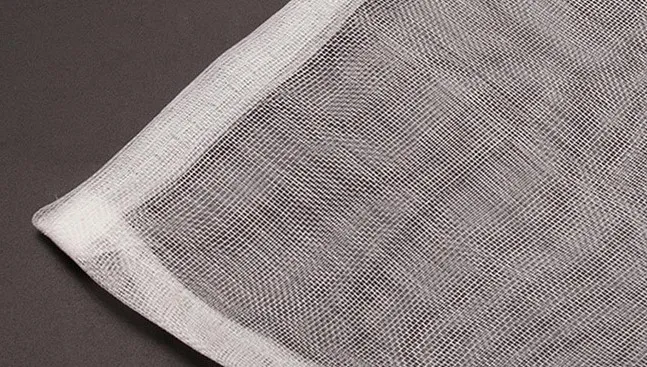-
 Afrikaans
Afrikaans -
 Albanian
Albanian -
 Amharic
Amharic -
 Arabic
Arabic -
 Armenian
Armenian -
 Azerbaijani
Azerbaijani -
 Basque
Basque -
 Belarusian
Belarusian -
 Bengali
Bengali -
 Bosnian
Bosnian -
 Bulgarian
Bulgarian -
 Catalan
Catalan -
 Cebuano
Cebuano -
 China
China -
 Corsican
Corsican -
 Croatian
Croatian -
 Czech
Czech -
 Danish
Danish -
 Dutch
Dutch -
 English
English -
 Esperanto
Esperanto -
 Estonian
Estonian -
 Finnish
Finnish -
 French
French -
 Frisian
Frisian -
 Galician
Galician -
 Georgian
Georgian -
 German
German -
 Greek
Greek -
 Gujarati
Gujarati -
 Haitian Creole
Haitian Creole -
 hausa
hausa -
 hawaiian
hawaiian -
 Hebrew
Hebrew -
 Hindi
Hindi -
 Miao
Miao -
 Hungarian
Hungarian -
 Icelandic
Icelandic -
 igbo
igbo -
 Indonesian
Indonesian -
 irish
irish -
 Italian
Italian -
 Japanese
Japanese -
 Javanese
Javanese -
 Kannada
Kannada -
 kazakh
kazakh -
 Khmer
Khmer -
 Rwandese
Rwandese -
 Korean
Korean -
 Kurdish
Kurdish -
 Kyrgyz
Kyrgyz -
 Lao
Lao -
 Latin
Latin -
 Latvian
Latvian -
 Lithuanian
Lithuanian -
 Luxembourgish
Luxembourgish -
 Macedonian
Macedonian -
 Malgashi
Malgashi -
 Malay
Malay -
 Malayalam
Malayalam -
 Maltese
Maltese -
 Maori
Maori -
 Marathi
Marathi -
 Mongolian
Mongolian -
 Myanmar
Myanmar -
 Nepali
Nepali -
 Norwegian
Norwegian -
 Norwegian
Norwegian -
 Occitan
Occitan -
 Pashto
Pashto -
 Persian
Persian -
 Polish
Polish -
 Portuguese
Portuguese -
 Punjabi
Punjabi -
 Romanian
Romanian -
 Russian
Russian -
 Samoan
Samoan -
 Scottish Gaelic
Scottish Gaelic -
 Serbian
Serbian -
 Sesotho
Sesotho -
 Shona
Shona -
 Sindhi
Sindhi -
 Sinhala
Sinhala -
 Slovak
Slovak -
 Slovenian
Slovenian -
 Somali
Somali -
 Spanish
Spanish -
 Sundanese
Sundanese -
 Swahili
Swahili -
 Swedish
Swedish -
 Tagalog
Tagalog -
 Tajik
Tajik -
 Tamil
Tamil -
 Tatar
Tatar -
 Telugu
Telugu -
 Thai
Thai -
 Turkish
Turkish -
 Turkmen
Turkmen -
 Ukrainian
Ukrainian -
 Urdu
Urdu -
 Uighur
Uighur -
 Uzbek
Uzbek -
 Vietnamese
Vietnamese -
 Welsh
Welsh -
 Bantu
Bantu -
 Yiddish
Yiddish -
 Yoruba
Yoruba -
 Zulu
Zulu
Properties and Applications of Extruded Steel Mesh in Construction and Industry
Extruded steel mesh is a versatile and durable product that has gained popularity across various industries due to its numerous advantages over traditional materials. This innovative mesh is created through the extrusion process, which involves forcing heated steel through a die to create a desired shape. The result is a strong, lightweight, and corrosion-resistant material that can withstand significant stress, making it ideal for a wide range of applications.
One of the most significant benefits of extruded steel mesh is its superior strength-to-weight ratio. Unlike other forms of steel mesh, extruded variants provide enhanced structural integrity without adding unnecessary weight. This characteristic makes them particularly useful in construction applications, where both strength and weight savings are crucial. For instance, builders often use extruded steel mesh in reinforcing concrete structures, such as bridges and high-rise buildings, to improve their durability and load-bearing capabilities.
Another advantage of extruded steel mesh is its resistance to environmental factors. The extrusion process creates a uniform surface that is less prone to corrosion and rusting compared to traditional welded or woven steel mesh. This property makes extruded steel mesh suitable for outdoor applications, such as fencing, landscaping, and architectural features. In marine environments, where exposure to saltwater can be detrimental to materials, extruded steel mesh stands out as a reliable choice.
extruded steel mesh

In addition to its physical properties, extruded steel mesh offers design flexibility. It can be manufactured in various sizes, shapes, and mesh patterns, allowing architects and engineers to incorporate it into their designs seamlessly. This adaptability makes it a preferred choice for decorative applications, including facades and partitions, where aesthetics and functionality must coexist.
Moreover, extruded steel mesh contributes to sustainability efforts in the construction industry. Since it is often made from recycled steel, its production has a lower environmental impact compared to other materials. Furthermore, its longevity and durability reduce the need for frequent replacements, thereby conserving resources and minimizing waste.
In conclusion, extruded steel mesh is an essential material that combines strength, durability, and versatility. Its unique characteristics and benefits make it an ideal choice for a wide range of applications across various industries, from construction to design. As the demand for sustainable and resilient materials grows, extruded steel mesh is poised to play a significant role in shaping the future of building and manufacturing practices.
-
Shipping Plastic Bags for Every NeedNewsJul.24,2025
-
Safety Netting: Your Shield in ConstructionNewsJul.24,2025
-
Plastic Mesh Netting for Everyday UseNewsJul.24,2025
-
Nylon Netting for Every UseNewsJul.24,2025
-
Mesh Breeder Box for Fish TanksNewsJul.24,2025
-
Expanded Steel Mesh Offers Durable VersatilityNewsJul.24,2025











